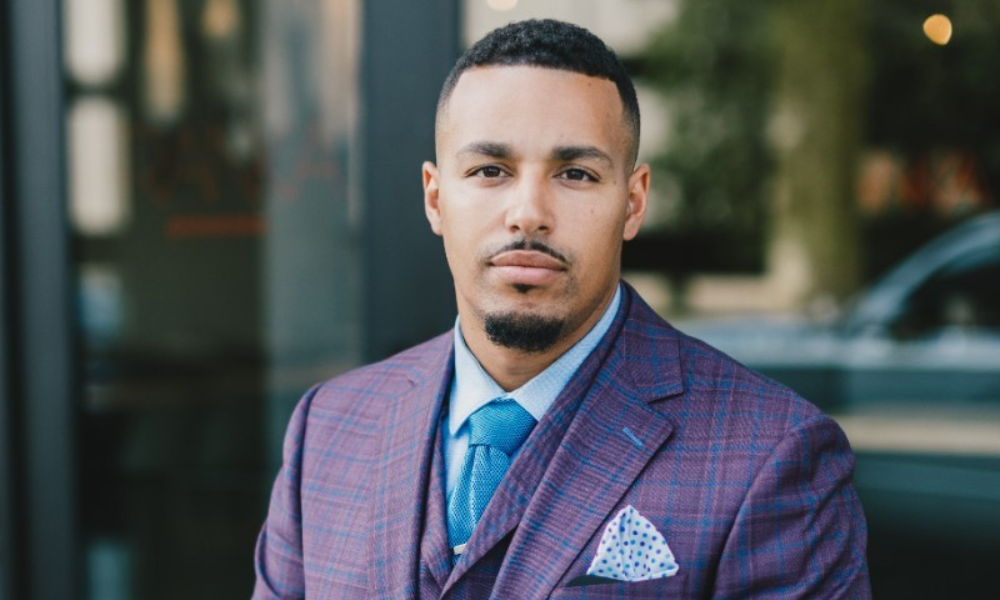

Stoy Hall has a unique vantage point on the challenges and opportunities in promoting diversity, equity, and inclusion (DEI) within the wealth management industry, especially against the backdrop of significant political and societal changes.
Speaking on recent developments, Hall says DEI pushback will dismantle decades of important yet gradual work towards equal representation in the financial space.
“To have something come down like, ‘Hey, we’re getting rid of everything and starting back over,’ really sets us back 50, 60, 100 years,” said Hall, CEO and founder of Black Mammoth.
For Hall, DEI’s essence was never about undermining merit, but addressing systemic inequities that hinder access to opportunities.
“I believe everyone in life should be able to stand up to their own merit,” he explained, emphasizing that while this ideal is laudable, reality often deviates sharply. “The problem is, that’s not how my report is—not even close.”
Research from Coinlaw found that Black professionals constitute about 8% of the financial services workforce, despite making up 13.6% of the overall population. What’s more, Latinx representation reached 10% in 2023, reflecting a modest increase of 0.5% over five years. For Hall, he described the industry as highly reactive.
“We react to what goes on, try to fix it for our clients, and make the best of it. We need to be more proactive.” Proactive efforts, he argued, require an unprecedented level of collaboration and community-building within the industry, which has been slow to emerge.
And, to address these systemic barriers, Hall and his peers have been mobilizing grassroots initiatives, uniting Black wealth managers to formulate actionable solutions.
“We’re little fish in this big pond, and I believe the best way for us to make a dent in this thing, which is going to take a couple decades, is for us to come together and help each other and lift each other up as much as we can,” he told IN.
The approach Hall advocates is deeply collaborative and client-focused, prioritizing the best outcomes for communities.
“When I meet with the client, I’m meeting with them, not for me and my services. I’m meeting with them to get them the best spots possible, whatever that may be,” he said, describing his work as part of a broader collective effort.
The abrupt cessation of federal DEI initiatives is a significant setback, but Hall sees potential in the heightened visibility and urgency it has created.
“This is injustice. This is wrong,” he stated. “It’s usually a flash in the pan. Something happens for a year, and then it kind of goes away.”
The solution, Hall believes, lies in creating durable structures to support DEI. He stressed the need for an organized entity to centralize efforts, adding that “if someone would take that or a group would take that initiative to allow others to jump on board with it, you’d see the needle move in a quick fashion.”
The racial wealth disparity in the United States is another pressing issue Hall addressed, emphasizing the role of wealth management firms in mitigating this inequity. The industry is shifting towards a more holistic financial planning model, which Hall describes as a “modern family office” approach. “Clients specifically want someone that they can partner with that’s going to be with them through their life journey,” he added.
This shift necessitates new strategies for engaging with underserved communities, which often lack the financial assets required to access traditional wealth management services.
“These Black communities do not have the assets for the majority of these practices, two $50 million minimums, and it’s just not realistic,” he observed. For Hall, addressing the wealth gap involves tackling systemic economic disparities that cut across racial lines, not just focusing on the racial wealth gap alone.
Hall called for bold commitments from the wealth management industry to combat the current rollbacks on DEI.
“The wealth management industry specifically needs to address and come out aggressively,” he argued. Hall highlighted the demographic changes in America, noting, “By 2030, white America is not going to be majority anymore.”
For him, this is a wake-up call for institutions to embrace DEI not as a choice but as an imperative.
“We need to be louder, and we need to be seen,” he said

Summit Financial unveiled a suite of eight new tools, including AI lead gen and digital marketing software, while MassMutual forges a new partnership with Orion.

A new analysis shows the number of actions plummeting over a six-month period, potentially due to changing priorities and staffing reductions at the agency.

The strategic merger of equals with the $27 billion RIA firm in Los Angeles marks what could be the largest unification of the summer 2025 M&A season.

Report highlights lack of options for those faced with emergency expenses.

However, Raymond James has had success recruiting Commonwealth advisors.
Orion's Tom Wilson on delivering coordinated, high-touch service in a world where returns alone no longer set you apart.
Barely a decade old, registered index-linked annuities have quickly surged in popularity, thanks to their unique blend of protection and growth potential—an appealing option for investors looking to chart a steadier course through today's choppy market waters, says Myles Lambert, Brighthouse Financial.
